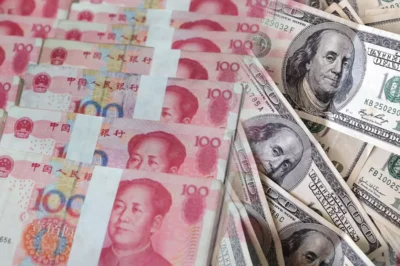
Introduction
In today’s interconnected global economy, understanding currency exchange rates is crucial for individuals and businesses alike. Whether you’re a traveler planning a trip to China or a business owner dealing with international transactions, knowing the value of your money in different currencies is essential. One common query that often arises is the conversion of Chinese Yuan (CNY) to US Dollars (USD). In this article, we’ll explore what 10 Chinese Dollars mean in terms of USD and delve into factors influencing currency exchange rates.
Chinese Yuan, denoted as CNY or RMB (Renminbi), is the official currency of the People’s Republic of China. On the other hand, the US Dollar, symbolized as USD, is the primary currency of the United States and is widely used as the world’s reserve currency.
At the time of writing, the exchange rate fluctuates based on various factors such as economic indicators, geopolitical events, government policies, and market sentiment. It’s important to note that exchange rates are not static; they can vary from day to day or even within a single day due to market dynamics.
So, what does 10 Chinese Dollars convert to in USD?
To ascertain this, we need to check the prevailing exchange rate. Let’s consider a hypothetical scenario where 1 Chinese Yuan equals approximately 0.15 US Dollars. With this conversion rate, 10 Chinese Yuan would be equivalent to 1.50 US Dollars.
However, it’s crucial to consult reliable sources or financial institutions for real-time exchange rates, as they may differ slightly from our hypothetical example.
Several factors influence currency exchange rates:
Interest Rates: Central banks adjust interest rates to control inflation and economic growth, which in turn affects currency value.
Economic Indicators: Factors like GDP growth, unemployment rates, and trade balances can impact a country’s currency strength.
Political Stability: Political events, elections, and government policies can influence investor confidence and thus currency values.
Market Sentiment: Speculation and investor perception of a currency’s future value can lead to short-term fluctuations.
Global Events: Geopolitical tensions, natural disasters, or global economic trends can affect currency markets.
Given these factors, predicting exchange rate movements with absolute certainty is challenging. However, staying informed about economic trends and global events can help individuals and businesses make informed decisions regarding currency exchange.
For travelers planning a trip to China, understanding the value of their currency in Chinese Yuan helps in budgeting and making financial transactions during their stay. Similarly, businesses engaging in international trade must monitor exchange rates to optimize profits and mitigate currency-related risks.
Conclusion
In conclusion, the conversion of 10 Chinese Dollars to USD depends on the prevailing exchange rate, which is influenced by various economic, political, and market factors. While exchange rates can fluctuate, staying informed and seeking guidance from financial experts can help navigate the complexities of currency exchange effectively.







